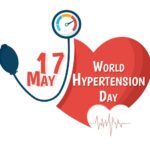August 07,2018
Cumulative case count as of August 06, 2018 :
• Confirmed: 16
• Probable: 27
• Total cases: 43
• Total deaths: 34
• Under the leadership of the Minister of Health, WHO and its key partners – including UNICEF, the World Food Programme, the International Federation of the Red Cross and Red Crescent Societies and Médecins Sans Frontières – and in particular MONUSCO, are working non-stop, in the outbreak area as well as at regional and headquarter levels, to contain and stop this latest outbreak as quickly as possible.
• The cost of the response is likely to be significant, especially in view of the security situation.
• Current response focus: contact tracing, infection prevention & control, particularly as regards health facilities, isolation & care of patients, outreach to communities.
• Staff in field: about 30 staff already in, or on their way to Beni. Teams also headed to Mangina. Some of the staff were involved in the operation in Equateur Province. Staff include logisticians, epidemiologist, communicators, clinical care specialists, community engagement specialists, and emergency coordinators.
• Mobile lab has been deployed in Beni as of 2 August
• Contact tracing: Has started in affected zones but needs to be further strengthened rapidly. Over 900 contacts have been registered thus far in Mangina.
• Treatment centres are being set up in Beni (by Alima) and in Mangina (by MSF France).
• Vaccination: A team of vaccination experts from Guinea will be deployed to support ring vaccination (once strain confirmed). Draft SAGE recommendations and a revised protocol are expected on 6 August. Vaccination is expected to begin this week if all the necessary steps are in place. A clinical team with therapeutics are arriving on 7 August
• Safe burials have been carried out in Beni. Systems is being set up to ensure that safe and dignified burials will be conducted throughout the affected zones; thus far two sites are covered– one in Beni and one in Mangina.
• Mobility: 4 WHO vehicles will be in Goma to be transferred to Beni by road if security allows; 10 more WHO vehicles can be dispatched to Beni (locally purchased for EVD response in Mbandaka); the first 10 MOSS MONUSCO vehicles arrived on 5 August in Beni.
• Cold Chain: Ultra cold chain arrived in Beni on 5 August, will be operational as of 7 Aug.
• Two planeloads of supplies arrived over the weekend, with cold chain equipment, isolation units, and vehicles.
• Surveillance at points of entry/Cross-border preparedness: The Regional Emergency Director for Africa has informed neighbouring countries (Rwanda, Uganda, Burundi, South Sudan) of the outbreak and emphasized the need for heightened surveillance and preparedness actions in the respective countries, particularly along the border with North Kivu.
• 28 key points of entry have been identified to strengthen surveillance capacity to rapidly detect and respond to potential new Ebola cases (visual observation, temperature measurement, health form, medical referral), and to engage communities on border areas to improve knowledge of EVD and its prevention.
• Funding: WHO has released $2 million from its Contingency Fund for Emergencies.
• WHO Director- General, Dr Tedros and WHO Deputy Director General Dr Peter Salama will travel to DRC on Thursday this week to see the first-hand the response efforts
Yemen, Oral Cholera Vaccination
• As part of efforts to prevent a third wave of cholera in Yemen, WHO, UNICEF and partners started an oral cholera vaccination campaign in Hudaydah and Ibb on August 4
• In first two days more than 3,000 local health workers reached more than 200,000 people with oral cholera vaccine in two districts of Hudaydah and a third district in Ibb governorate. These three priority districts were targeted for vaccination because they were assessed to be the most vulnerable to an escalation of cholera.
• Figures for the third day of the campaign (yesterday) are still being tallied
• This is the second cholera vaccination campaign in Yemen. WHO, UNICEF, and partners implemented the first round in May 2018. The first campaign covered high-risk districts in Aden.
• Yemen has faced one of the worst cholera outbreaks in recent history with more than 1 million cases of suspected cholera and 2,316 deaths since April 2017.







